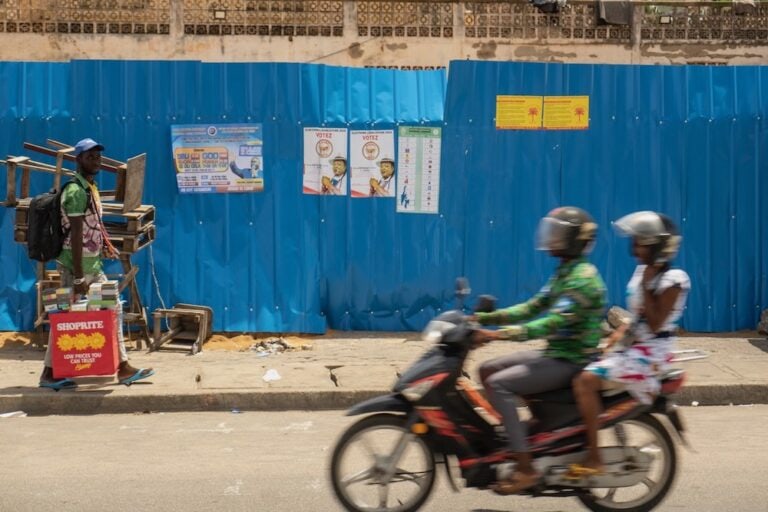(RSF/IFEX) – In mid-August 2002, Minister of Communications Pitang Tchalla presented a new bill to amend the Press Code to the government. The bill makes provisions for heavy prison sentences for defaming or insulting the president or state institutions. In a letter to Togolese Prime Minister Koffi Sama, RSF Secretary-General Robert Ménard stated, “This bill […]
(RSF/IFEX) – In mid-August 2002, Minister of Communications Pitang Tchalla presented a new bill to amend the Press Code to the government. The bill makes provisions for heavy prison sentences for defaming or insulting the president or state institutions.
In a letter to Togolese Prime Minister Koffi Sama, RSF Secretary-General Robert Ménard stated, “This bill demonstrates that the Togolese authorities have decided to further increase their repression of journalists. In 1998, Togo was one of the first countries to initiate the decriminalisation of press law violations. This sudden turnaround is very disappointing and hardly encouraging for the future of the country’s private press.” RSF urged the prime minister not to present the bill to Parliament.
Article 89 of the Press Code amendment bill stipulates that “insulting the president is punishable by a one to five-year jail term with no parole and a fine of one to five million CFA francs” (approx. US$1,480 to 7,390; 1,525 to 7,620 euros). The bill also makes provisions for a three-month to two-year prison term for anyone who insults “the National Assembly speaker, the prime minister, parliamentarians, government members and consitutional institutions”. In the current Press Code, insulting the head of state is punishable by a one to six-month prison term.
The bill also provides for a three-year jail term (vs. a three-month jail term at present) for defamation of “courts, tribunals, the armed forces, security forces, constituent bodies and the public administration”. A new article also gives the minister responsible for home affairs and security the authority to order “the seizure of copies of all publications (…) whose content is likely to threaten public order and security”.


